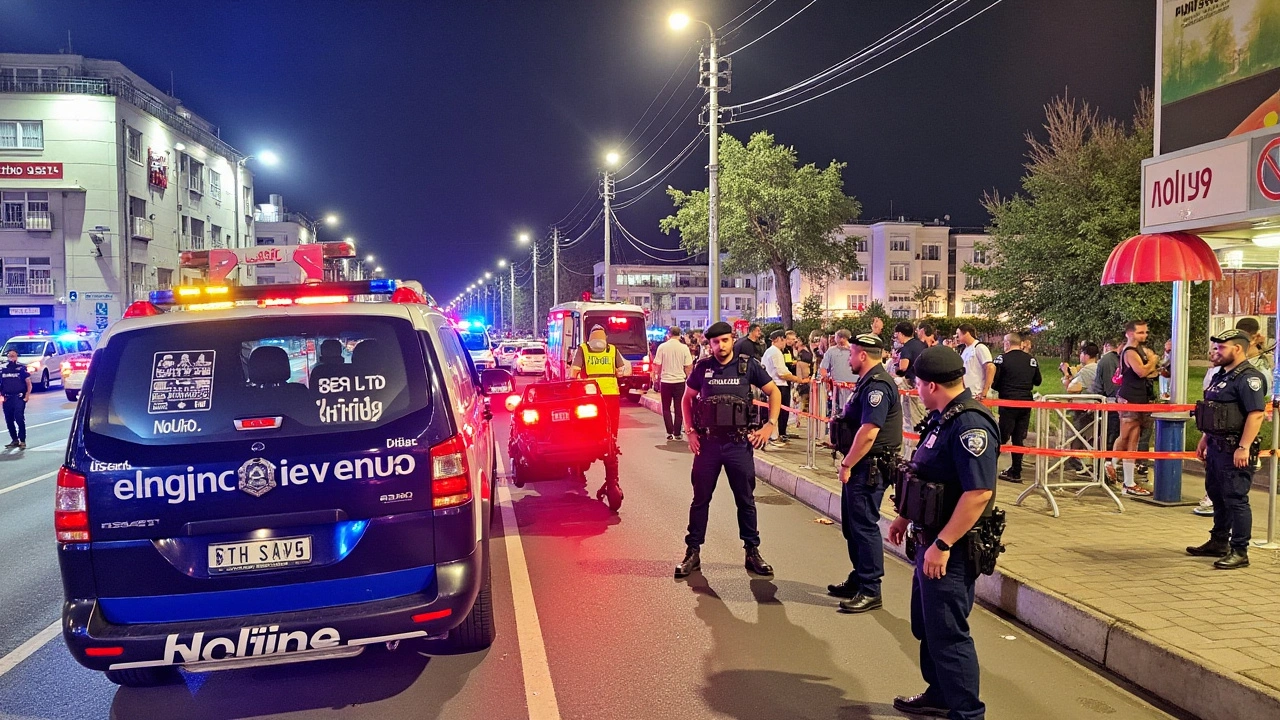Tragic Terrorist Attack in Tel Aviv Claims Seven Lives
On a seemingly ordinary day, October 1, 2024, Tel Aviv found itself at the heart of a tragic and violent incident that left seven people dead and several others injured. The attack, which took place on Yerushalayim Street, has shocked not only the residents of Tel Aviv but the entire nation of Israel. The Israeli Police Spokesperson's Unit confirmed the devastating news, revealing that the motive behind the brutal act is suspected to be terrorism.
The incident unfolded in a bustling part of the city, in Jaffa, near cafes, restaurants, and a light rail station. The area, typically teeming with locals and tourists alike, was turned into a scene of chaos and horror. Eyewitnesses reported hearing gunshots and witnessing the sheer panic that ensued. Videos circulating on social media platforms depicted multiple bodies lying on the ground, a grim testament to the violence that had erupted.
Details Emerge on the Attack and Response
Initial reports indicate that the attack was carried out by at least two gunmen. These assailants, whose identities remain undisclosed, were subsequently shot dead by the swift response of security forces and an armed civilian. The quick action of these responders likely prevented further loss of life, though the damage had already been significant. The authorities' immediate treatment of the incident as a terrorist attack underscores the severity and the premeditated nature of the assault.
The timing of the attack has also raised eyebrows, coming shortly before air raid sirens sounded, amidst a period of heightened tensions with Iran. While there is no current evidence directly linking this incident to the situation in Gaza or Lebanon, the backdrop of regional instability surely contributes to communal anxiety. The specter of terrorism looms large over a region often embroiled in conflict, and each new incident adds to the collective trauma.
Impact on the Community and National Response
The location of the attack was a key factor in the magnitude of its impact. Jaffa, a historic and vibrant district just south of central Tel Aviv, is a melting pot of cultures, frequented by both locals and tourists. The attack, therefore, struck at the heart of daily life, making it not just a local tragedy but a national one. The cafes and restaurants that usually serve as meeting points and places of relaxation were transformed into places of fear.
Local authorities and national leaders have been vocal in their condemnation of the attack. There has been an outpouring of solidarity and support both locally and internationally, as Israel grapples with another instance of violence. This incident further complicates an already tense environment, with the population having to navigate the constant threat of terrorism amidst existing geopolitical strains.
Heightened Tensions with Iran
The context of rising tensions with Iran cannot be ignored when discussing this attack. Israeli-Iranian relations have been particularly strained, with talk of potential conflicts and retaliations. The air raid sirens that sounded shortly after the attack have added to the speculation and fear regarding Iran's involvement or influence over such incidents.
Although no direct connection has been made between this attack and the broader conflicts involving Iran, the psychological impact is undeniable. Residents and authorities are on high alert, aware that the next act of violence could come from anywhere at any time. This constant state of vigilance affects daily life, creating an environment where every sound could potentially signal danger.
Security Measures and Future Precautions
In the wake of the attack, security has been ramped up significantly across Tel Aviv and other major cities. Authorities are conducting thorough investigations to uncover any potential links and prevent future incidents. Increased police and military presence in public areas aims to reassure the citizens and deter potential threats.
Public vigilance has also been encouraged. Citizens are urged to report any suspicious activities and remain cautious. This collaborative effort between the public and security forces is crucial in a landscape where the threat of terrorism is a daily reality.
The government is also reviewing existing security protocols to identify any gaps that could be exploited. This includes reassessing the readiness of first responders and the effectiveness of emergency procedures. Such evaluations are necessary to ensure that if an incident does occur, the response is swift and coordinated, minimizing casualties and restoring order as quickly as possible.
Global Reactions and Solidarity
Internationally, there has been a strong show of support for Israel. Leaders from around the world have condemned the attack and expressed their condolences to the victims' families. The solidarity shown by the global community reaffirms the universal condemnation of terrorism and the collective resolve to combat it.
This support is not just symbolic; it often translates into concrete actions such as intelligence sharing and coordinated counter-terrorism efforts. The international community, facing terrorism as a global threat, understands that cooperation is key in addressing and preventing such heinous acts.
The attack in Tel Aviv serves as a grim reminder of the ever-present threat of terrorism. As details continue to emerge, the resilience of the human spirit in the face of adversity stands out. The community comes together, stronger and more united, determined not to let such acts of violence define them. The path ahead may be fraught with challenges, but the resolve to overcome and rebuild remains steadfast.

